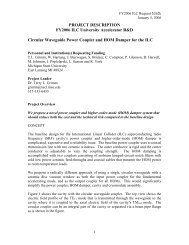order denying motions to suppress and dismiss - University of Illinois ...
order denying motions to suppress and dismiss - University of Illinois ...
order denying motions to suppress and dismiss - University of Illinois ...
- No tags were found...
You also want an ePaper? Increase the reach of your titles
YUMPU automatically turns print PDFs into web optimized ePapers that Google loves.
1<br />
2<br />
3<br />
4<br />
5<br />
6<br />
7<br />
8<br />
9<br />
10<br />
11<br />
12<br />
13<br />
14<br />
15<br />
16<br />
17<br />
18<br />
19<br />
20<br />
21<br />
22<br />
23<br />
24<br />
25<br />
26<br />
27<br />
28<br />
himself as a Post Falls police <strong>of</strong>ficer <strong>and</strong> left a business card with the Defendants<br />
confirming the same. There is no doubt Tafoya hoped the Defendants would<br />
assume he was a member <strong>of</strong> the Post Falls Police Department. The court finds<br />
credible Tafoya’s testimony that he did not say anything <strong>to</strong> the Defendants about<br />
the nature <strong>of</strong> his <strong>of</strong>ficial position <strong>and</strong> that he was not asked about it by the<br />
10<br />
Defendants. The court also finds that this does not rise <strong>to</strong> the level <strong>of</strong> the<br />
“affirmative or deliberate” misrepresentation at issue in Bosse where the state<br />
11<br />
inspec<strong>to</strong>r specifically advised the defendant that the ATF agent “is with me.”<br />
Furthermore, in Bosse, the state inspec<strong>to</strong>r was truly conducting a state inspection<br />
10<br />
The Defendants who testified at the hearing are not credible on this<br />
factual matter. See pp. 6-7 supra.<br />
11<br />
Nor does it rise <strong>to</strong> the level <strong>of</strong> the affirmative misrepresentation at issue in<br />
United States v. Stringer, 408 F.Supp.2d 1083 (D. Or. 2006). In Stringer, a<br />
district court <strong>dismiss</strong>ed indictments, <strong>and</strong> alternatively <strong>order</strong>ed evidence<br />
<strong>suppress</strong>ed, where it found egregious government misconduct in concealing in a<br />
civil securities investigative proceedings the fact that criminal prosecutions were<br />
already contemplated <strong>and</strong> for which the civil proceedings were being used <strong>to</strong><br />
gather evidence. In response <strong>to</strong> direct questions by defendant’s at<strong>to</strong>rney, a<br />
Securities Exchange Commission (SEC) at<strong>to</strong>rney affirmatively misrepresented that<br />
the defendant Stringer was not the “target” <strong>of</strong> any investigation <strong>and</strong> that the SEC<br />
was not working in conjunction with the U.S. At<strong>to</strong>rney’s Office regarding a<br />
possible criminal investigation. Id. at 1087-89, citing among other cases, United<br />
th<br />
States v. Tweel, 550 F.2d 297, 300 (5 Cir. 1977). The court noted it is a due<br />
process violation if government agents make affirmative misrepresentations as <strong>to</strong><br />
the nature or existence <strong>of</strong> parallel proceedings <strong>and</strong> that a government agency may<br />
not develop a criminal investigation under the auspices <strong>of</strong> a civil investigation.<br />
Because the defendants were identified as subjects <strong>of</strong> a criminal investigation, the<br />
government’s tactic <strong>to</strong> move forward under the guise <strong>of</strong> a civil investigation<br />
violated defendants’ due process rights. Id. at 1089, citing United States v.<br />
th<br />
Robson, 477 F.2d 13, 18 (9 Cir. 1973).<br />
ORDER DENYING MOTIONS<br />
TO SUPPRESS AND DISMISS - 18


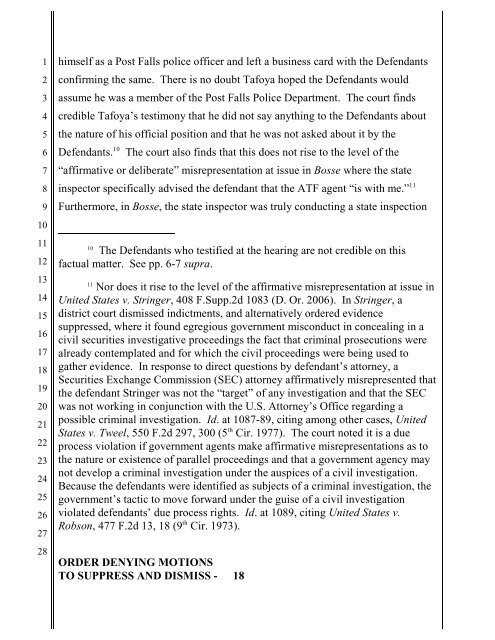
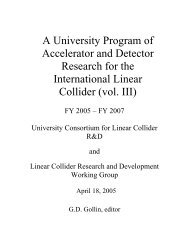
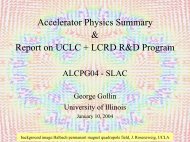
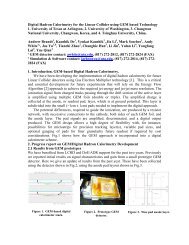
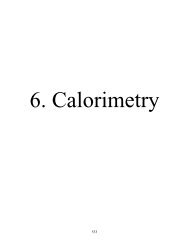
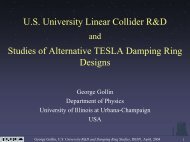
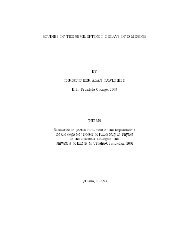
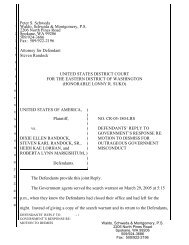

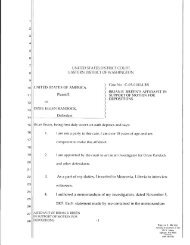
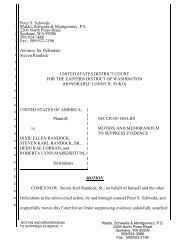
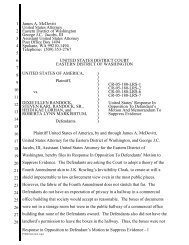
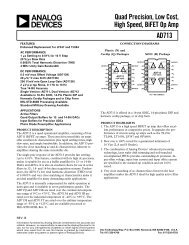
![Linear Collider [Accelerator] Overview](https://img.yumpu.com/33867705/1/190x143/linear-collider-accelerator-overview.jpg?quality=85)
